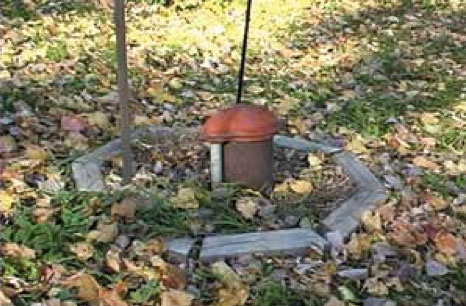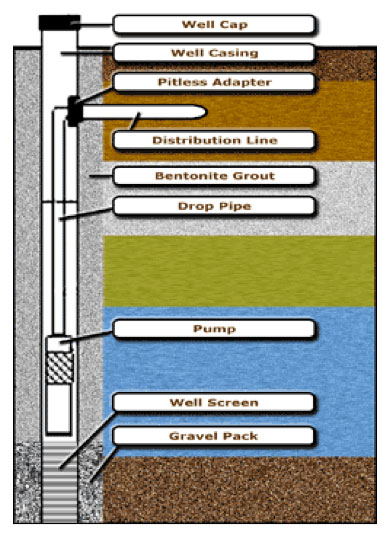Private Well Monitoring
Private Drinking Water Wells
If your family gets drinking water from a private well, do you know if your water is safe to drink? What health risks could you and your family face? Where can you go for help or advice?
The information contained in the EPA website may help you answer these questions. EPA regulates public water systems; it does not have the authority to regulate private drinking water wells.
Approximately 15 percent of Americans rely on their own private drinking water supplies, and these supplies are not subject to EPA standards, although some state and local governments do set rules to protect users of these wells. Unlike public drinking water systems serving many people, they do not have experts regularly checking the water’s source and its quality before it is sent to the tap. These households must take special precautions to ensure the protection and maintenance of their drinking water supplies.
 American Groundwater Trust Well Owner Information
American Groundwater Trust Well Owner Information
The American Ground Water Trust is a non-profit 501(c)(3) education organization dedicated to providing accurate information about water resources and wells to homeowners, teachers, water users, managers, planners, and community and state leader. The American Well owner(TAWO) Online publications contain information about ground water and water wells to help well owners, communities, businesses and farms maintain safe, reliable, cost-effective water supplies for sustainable use.
Wellowner.org
Provides useful information relating to ground water and private water well systems including the following topics and more: types of wells; planning a well; well construction agencies; wellowner tips; maintenance, water quality testing; finding a contractor; and understanding groundwater.
Exempt Wells Problems and Approaches in the Northwest
A WSU Speciality Conference May 2011, presentations covering a full range of topics are posted. An excerpt of the Conference Overview is provided below.
“When it comes to water use in the west, the general rule is “first in time, first in right,” otherwise known as the prior appropriations doctrine. However, another saying holds that “there are always exceptions to the rule.” The most common water-use exception is the exemption of certain water uses from many states’ water rights management processes. Exempt domestic wells supply water for residential development in many areas of the western United States. Expansion in the use of exempt domestic wells has raised widespread concerns about the sustainability of the groundwater supply, and created conflict between traditional water rights holders and water users that rely on exempt domestic wells due to surface-groundwater interactions and well interferences.”


